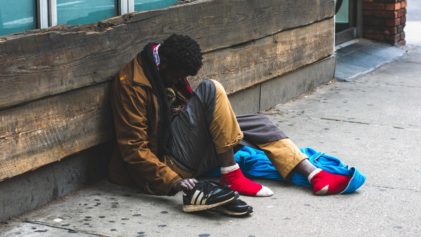
The housing crisis has led to the foreclosure of the homes of 10 million homeowners, this is equivalent to the population of Michigan, according to MotherJones.com. The African-American community in particular has lost over half its wealth because of the housing and jobs crisis that followed the 2008 financial crash.
Laura Gottesdiener, author of the book, “A Dream Foreclosed: Black America and the Right for a Place to Call Home,” says that up to 25 percent of the African-American families who purchased homes were victims of predatory lending.
By the end of 2013, Florida had the highest foreclosure rates in the nation at 3.01 percent, reports RealtyTrac. The national average is approximately 1 percent.
Ruth, an elderly Black woman, contacted Atlanta Black Star, is about her South Florida home that is underwater with negative equity. In 2005, she purchased the home for 400,000 dollars in Saint Lucie County, an hour north of West Palm Beach, and moved in a year later. Her income is from Social Security and a small pension that is equal to her monthly mortgage payments to PNC Bank.
“I have done all that I could to pay my mortgage. I used up all my savings and now all I have left is my home,” said Ruth, who doesn’t want her last name revealed. She had fallen behind on her payments and requested assistance through PNC’s Hardship Assistance Program. However, after sending hundreds of documents to the bank in late 2013, it denied her, claiming it did not receive the documentations from her.
Many banks do have hardship or foreclosure assistance programs, but it is unknown how many homeowners qualify and receive assistance through them. PNC officials would not disclose information about the rates of foreclosures versus those who get assistance to stay in their homes, or comment on their ongoing loss mitigation process with Ruth.
Many banks are able to provide hardship assistance to prevent foreclosure through federally funded programs such as Home Affordable Modification Program (HAMP) or Troubled Asset Relief Program (TARP) that was signed by former President George W. Bush in 2008.
In Florida, Sen. Bill Nelson recently called for a federal investigation into the mismanagement of the state’s $1 billion share of the federal mortgage assistance program, which stemmed from TARP. According to a statement from the senator’s office, only 18 percent of Floridians who applied for mortgage assistance received it – the lowest rate of all the states in the program.
However, as the wheels of a months-long investigation begin to churn, thousands of homeowners could be put onto the streets before receiving assistance. Banks have the right foreclose on a home at any time, even if the owner is applying for help.
In the case of Ruth, the senator’s office has filed a complaint with the Consumer Financial Protection Bureau to investigate her loan. But she frantically called AtlantaBlackStar this week with an update on her latest appeal to save her home through the bank’s hardship program.
“They are sending a property appraiser to my home at my expense, they said this is a part of the start of the foreclosure process,” she said.
S.C. Rhyne is a blogger and novelist in New York City. Follow the author on Twitter @ReporterandGirl, http://Facebook.com/TheReporterandTheGirl and visit her website at http://www.SCRhyne.com


